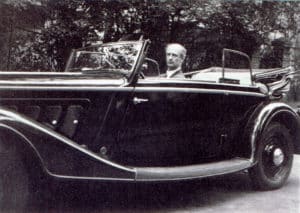A lifetime without Furtwängler
OrchestrasThis weekend will mark 70 years since the death of Wilhelm Furtwängler, on November 30, 1954.
While his political decisions remain contentious, his importance as a conductor has only increased. No musician in his time, or since, matched his mastery, vision and spontaneity in live performance.
The attached essay by Wolfgang Schreiber – written for the Wilhelm Furtwängler Society – puts his position rather well:
He believed that the ideal sphere of art had no connection with the pragmatism of politics. Furtwängler lived, so to speak, in two separate worlds – and he did not want to resolve the contradiction.
Read th Schreiber essay here (in German).
Over the next couple of days we will remind ourselves in a few posts of the highs and lows of this epic musical figure.
Note in this video how he doe not wait for the audience to settle down before starting the overture. No doubt who’s in charge.






Comments